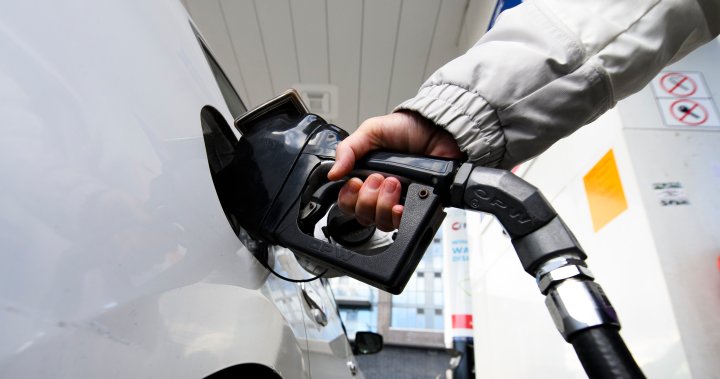Three premiers are requesting a chance to appear before the House of Commons finance committee to talk about their opposition to the carbon price increase ahead of April 1.
New Brunswick Premier Blaine Higgs sent the first request on Monday to the committee chair, Ontario Liberal Peter Fonseca.
“The upcoming planned 23 per cent increase to the federal government’s carbon tax will have a disastrous impact on New Brunswickers, and all Canadians,” Higgs wrote in a letter shared on X.
“I am requesting the opportunity to appear virtually before the finance committee this week to make the case as to why the federal government must – at minimum – cancel the planned increase.”
Similar letters to Fonseca from premiers Danielle Smith of Alberta and Saskatchewan’s Scott Moe were shared on social media Tuesday too.
All three premiers are requesting to appear virtually before the committee — though it’s not clear at this point whether any members of the committee will take up the requests and formally put them forward, as the rules require.
Fonseca tells Global News he was not aware of any requests by committee members to call a special meeting to study the requests. Under committee rules, four members of a committee can call for a special hearing but this requires two days’ notice at minimum.
The email you need for the day’s
top news stories from Canada and around the world.
All three provinces have long opposed the federal carbon price, taking part in the constitutional challenge against the policy that ultimately went to the Supreme Court of Canada. The top court ruled that the federal government has the authority to implement a minimum price on pollution.
At this point, there is not a scheduled finance committee meeting before April 1, as the House of Commons is not sitting this week. March 29 is a federal statutory holiday for Good Friday.
The increase from $65 per tonne to $80 is set to take effect on Monday. In practical terms, this increases the federal fuel charge on gasoline from around $0.14 per litre to almost $0.18.

The carbon price is scheduled to increase annually until 2030, reaching $170 per tonne.
It’s been a political flashpoint in recent weeks with seven premiers, including Liberal Premier of Newfoundland and Labrador Andrew Furey, calling for a pause on the increase. This opposition is framed around the argument the carbon price compounds the current cost-of-living crisis.
Liberal MPs often argue that Canadians living where the federal price is in place ultimately get more back in rebates than they pay. However, a Parliamentary budget officer analysis found there’s a net loss when broader economic factors are taken into consideration.
Earlier this year, NDP Manitoba Premier Wab Kinew said he wants to revisit the role of the carbon price in his province.
Prime Minister Justin Trudeau and Environment Minister Steven Guilbeault have been adamant there will be no further carve-outs in the pollution price.
In October 2023, Trudeau announced a three-year pause on the carbon price applying to home heating oil due to high costs. While the program is national, critics say it disproportionately benefits Atlantic Canada.
Last week, Guilbeault said they cannot put it on pause because you can’t pause climate change. He added the price is expected to account for about 30 per cent of Canada’s contribution to reaching its 2030 emission targets.
Conservative Leader Pierre Poilievre introduced an ultimately unsuccessful non-confidence motion last week over the Liberals not pausing the carbon price increase. The Bloc Québécois and NDP voted with the government.
— with files from Global News’ David Akin
© 2024 Global News, a division of Corus Entertainment Inc.




